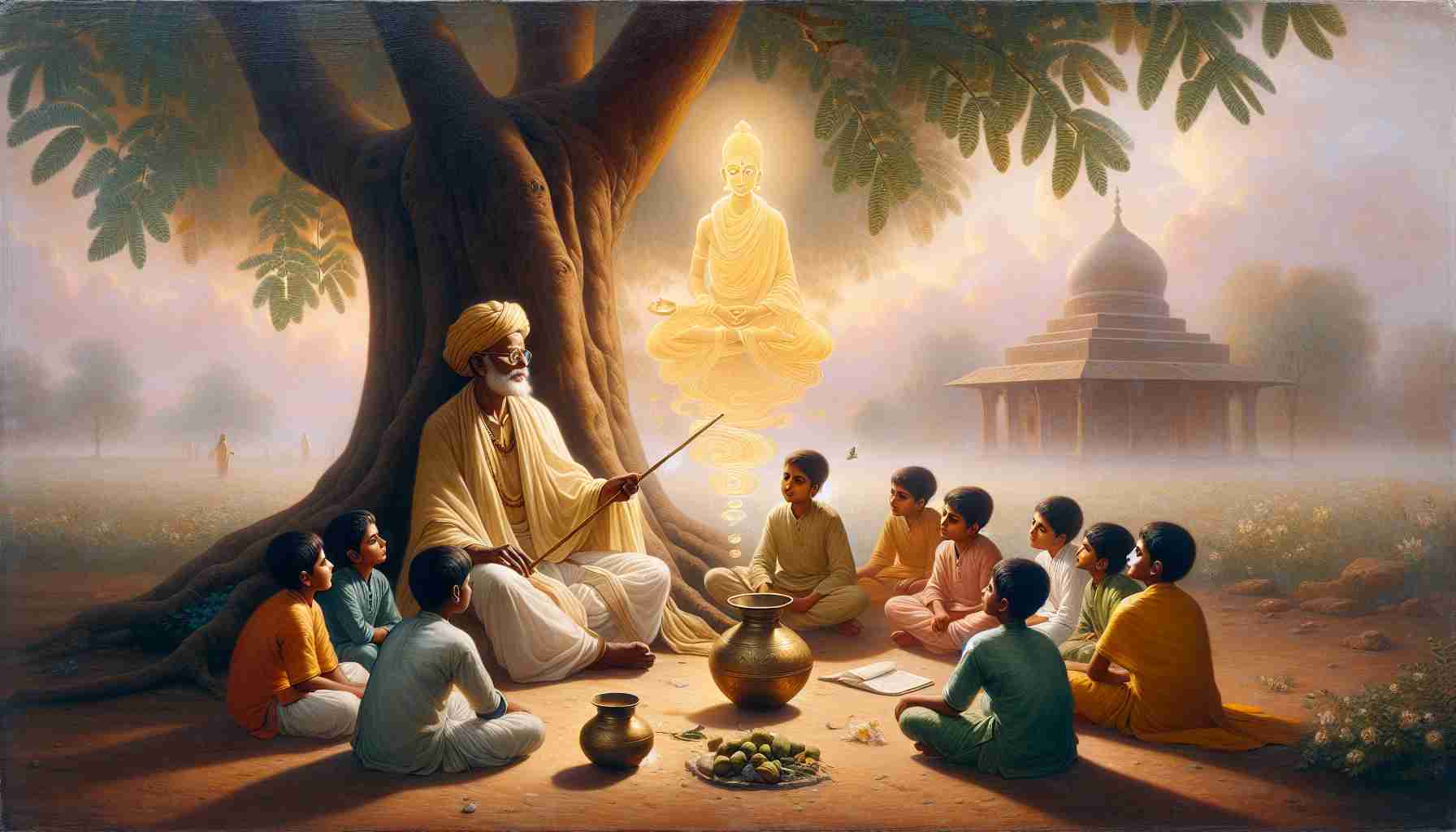

I was thirty-eight, and my hands still shook when I lit the evening lamp before the little murti of Lakshmi in our home shrine.
A decade ago, I had stolen from my father. Not money. Trust.
He had assigned me to manage the accounts of our small textile shop in Tiruvannamalai. I was young, impatient, and careless. When I lost a large sum in a foolish side venture, I forged the books. He discovered it a year later. He didn’t yell. He just said, “Truth, my son, is like Ganga water. Once polluted, it takes lifetimes to purify.”
He passed away two months after that—quietly, with his jaw set hard, saying little to me. And ever since, the weight of that guilt was my morning companion, pressing on my chest with every breath I took in temple air.
For years, I tried to numb it through seva — selfless service — cleaning the temple floors, helping sadhus, feeding cows... but nothing restored the quiet I once had standing before the deity. Nothing made my father’s eyes softer in memory.
One afternoon, while visiting the Sri Ramana Ashram, I sat beneath the old tamarind tree just outside. A group of children from the local school arrived with their guruji. One boy, maybe seven, was struggling to carry a brass vessel filled with water for puja. He tripped, fell, and the water spilled onto the dusty earth. The other children laughed. He looked crushed.
I stood, walked over, refilled the pot, and helped hold his trembling little hands until he reached the altar. No one noticed — no applause, no praise. But as the tiny fingers gripped the vessel again, a line from the Bhagavad Gita stirred inside me like monsoon wind rising:
"Even if you are the worst of sinners, you can cross over all sin by the raft of spiritual wisdom." (Bhagavad Gita 4.36)
That raft, I understood, is not words. It is action. Sacred action, born from sincerity, not shame.
That small gesture—to help that boy while no one watched—healed something. Not everything. Not all at once. But a corner of my guilt softened.
Like in the Mahabharata, when Bhishma chooses to lie bleeding on the battlefield not from punishment, but to offer his pain to the Lord—a choice born of dharma, not despair—I, too, began to shape each day around repairing rather than regretting.
Now, every Friday, I teach basic arithmetic to children from the basti near the railway tracks. I never speak of what I did. But I carry it into every lesson—transforming guilt into guidance, dishonor into devotion.
As the Upanishads say, "One becomes good by good action." (Chandogya Upanishad 8.1.15)
I still miss my father. His face still comes in my dreams, sharp and silent. But last week, in a dream, he smiled faintly. Hands folded. Nothing said.
That was enough.
For the first time in ten years, the lamp in my hands did not tremble.
I was thirty-eight, and my hands still shook when I lit the evening lamp before the little murti of Lakshmi in our home shrine.
A decade ago, I had stolen from my father. Not money. Trust.
He had assigned me to manage the accounts of our small textile shop in Tiruvannamalai. I was young, impatient, and careless. When I lost a large sum in a foolish side venture, I forged the books. He discovered it a year later. He didn’t yell. He just said, “Truth, my son, is like Ganga water. Once polluted, it takes lifetimes to purify.”
He passed away two months after that—quietly, with his jaw set hard, saying little to me. And ever since, the weight of that guilt was my morning companion, pressing on my chest with every breath I took in temple air.
For years, I tried to numb it through seva — selfless service — cleaning the temple floors, helping sadhus, feeding cows... but nothing restored the quiet I once had standing before the deity. Nothing made my father’s eyes softer in memory.
One afternoon, while visiting the Sri Ramana Ashram, I sat beneath the old tamarind tree just outside. A group of children from the local school arrived with their guruji. One boy, maybe seven, was struggling to carry a brass vessel filled with water for puja. He tripped, fell, and the water spilled onto the dusty earth. The other children laughed. He looked crushed.
I stood, walked over, refilled the pot, and helped hold his trembling little hands until he reached the altar. No one noticed — no applause, no praise. But as the tiny fingers gripped the vessel again, a line from the Bhagavad Gita stirred inside me like monsoon wind rising:
"Even if you are the worst of sinners, you can cross over all sin by the raft of spiritual wisdom." (Bhagavad Gita 4.36)
That raft, I understood, is not words. It is action. Sacred action, born from sincerity, not shame.
That small gesture—to help that boy while no one watched—healed something. Not everything. Not all at once. But a corner of my guilt softened.
Like in the Mahabharata, when Bhishma chooses to lie bleeding on the battlefield not from punishment, but to offer his pain to the Lord—a choice born of dharma, not despair—I, too, began to shape each day around repairing rather than regretting.
Now, every Friday, I teach basic arithmetic to children from the basti near the railway tracks. I never speak of what I did. But I carry it into every lesson—transforming guilt into guidance, dishonor into devotion.
As the Upanishads say, "One becomes good by good action." (Chandogya Upanishad 8.1.15)
I still miss my father. His face still comes in my dreams, sharp and silent. But last week, in a dream, he smiled faintly. Hands folded. Nothing said.
That was enough.
For the first time in ten years, the lamp in my hands did not tremble.